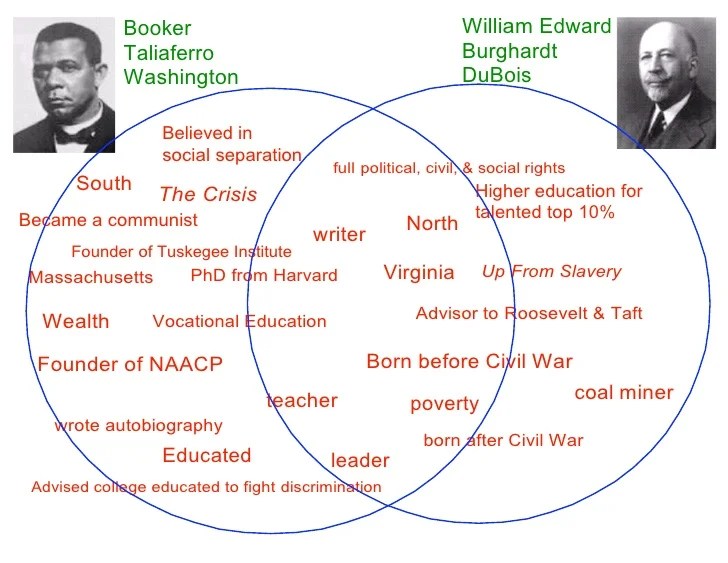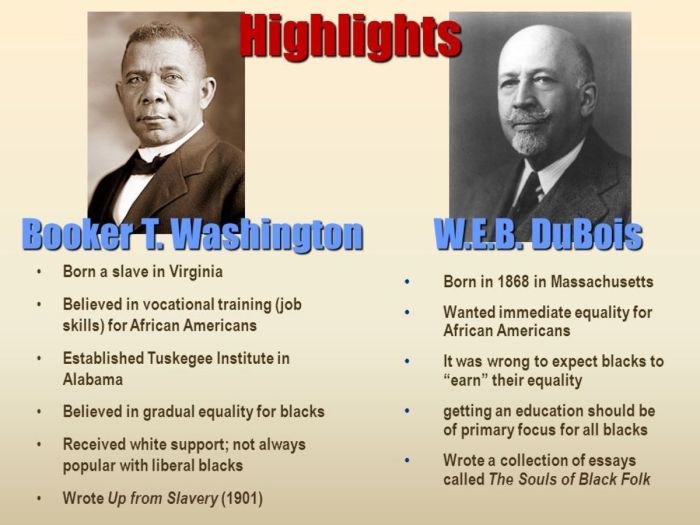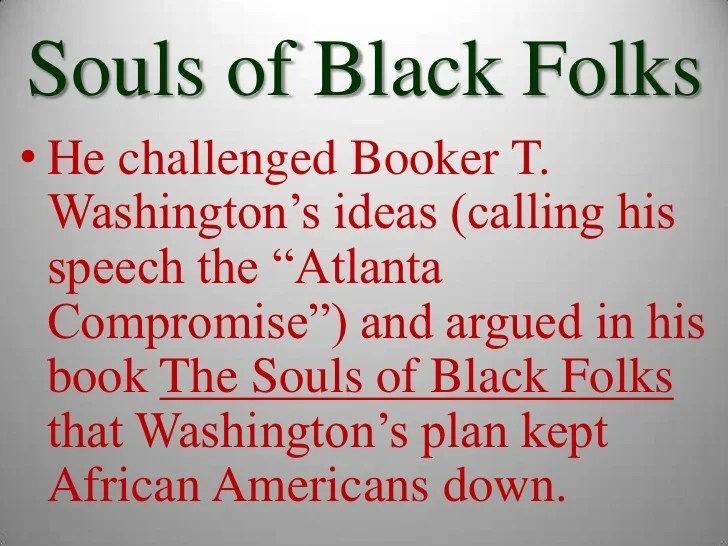Booker t washington w.e.b. dubois venn diagram – The philosophies of Booker T. Washington and W.E.B. Du Bois, two prominent African American leaders during the late 19th and early 20th centuries, have been extensively compared and contrasted. Their divergent views on education, social change, and the role of the federal government in addressing racial inequality have shaped the African American community’s trajectory.
This comparative analysis utilizes a Venn diagram to visually represent the similarities and differences between Washington and Du Bois’s philosophies. By examining their shared beliefs and contrasting their areas of disagreement, we gain a deeper understanding of their lasting contributions to the fight for racial equality.
Booker T. Washington’s Philosophy

Booker T. Washington believed in self-reliance and economic empowerment for African Americans. He argued that they needed to acquire practical skills and become economically independent before they could achieve social and political equality. Washington founded the Tuskegee Institute in 1881, which focused on vocational education and provided training in agriculture, carpentry, and other trades.
Washington’s Focus on Economic Empowerment
- Established the Tuskegee Institute to provide vocational education for African Americans.
- Believed that economic independence was essential for social and political equality.
- Emphasized the importance of self-help and self-reliance.
W.E.B. Du Bois’ Philosophy

W.E.B. Du Bois emphasized the importance of higher education and intellectual development for African Americans. He argued that they needed to be educated and articulate to effectively challenge racial inequality. Du Bois was a founder of the National Association for the Advancement of Colored People (NAACP) in 1909 and a leading advocate for civil rights throughout his life.
Du Bois’ Advocacy for Civil Rights, Booker t washington w.e.b. dubois venn diagram
- Co-founded the National Association for the Advancement of Colored People (NAACP) in 1909.
- Campaigned for an end to segregation and discrimination.
- Challenged the “separate but equal” doctrine established by the Supreme Court in Plessy v. Ferguson.
Areas of Agreement
Washington and Du Bois shared some commonalities in their views on education. Both believed that education was essential for the advancement of African Americans. They also agreed on the importance of economic opportunities for African Americans.
Shared Beliefs
- Education is essential for the advancement of African Americans.
- Economic opportunities are important for African Americans.
Areas of Disagreement

Washington and Du Bois differed in their views on the pace of social change. Washington advocated for gradualism, while Du Bois advocated for immediate social change. Washington also believed that African Americans should focus on economic development before seeking social and political equality, while Du Bois believed that both economic and social change were necessary.
Differences in Perspectives
- Washington advocated for gradualism, while Du Bois advocated for immediate social change.
- Washington believed that African Americans should focus on economic development before seeking social and political equality, while Du Bois believed that both economic and social change were necessary.
Helpful Answers: Booker T Washington W.e.b. Dubois Venn Diagram
What were the key differences between Washington’s and Du Bois’s philosophies?
Washington prioritized gradual economic empowerment and vocational education, while Du Bois emphasized higher education and immediate social change through political activism.
How did Washington’s Tuskegee Institute contribute to the African American community?
Tuskegee Institute provided vocational training and education to African Americans, empowering them with skills and knowledge for economic self-sufficiency.
What was Du Bois’s role in the founding of the NAACP?
Du Bois was a co-founder of the National Association for the Advancement of Colored People (NAACP), a civil rights organization dedicated to fighting racial discrimination and promoting equality.